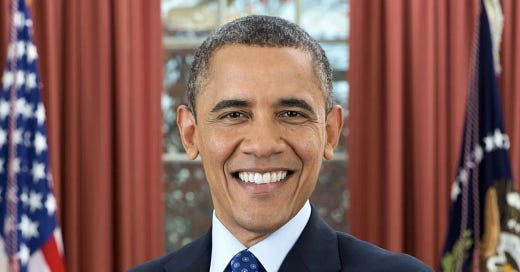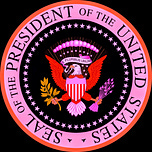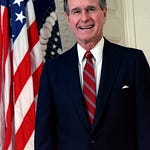1970
The nine-year-old stared at the photo. He had found the magazine in the U.S. embassy, his mother's workplace. The man in the picture was African American, but his skin was a hideous, washed-out shade. He had taken chemicals, the article said, to turn his skin white. The boy felt sick. What was this about?
He went by the name Barry Soetoro. Barry, an Americanization his Kenyan father had used, Soetoro, the name of his Indonesian stepfather. Barry and his mother had moved to Indonesia three years earlier. He liked it immediately. Soon he was speaking Bahasa, eating nasi goreng, catching crickets and flying kites with his friends. People often assumed he was from Ambon Island; the Ambonese were dark-skinned. He knew the truth. His mother taught him to cherish his heritage, buying him recordings of Mahalia Jackson and Martin Luther King, telling him about notable African Americans. She had taught him to be proud of his African ancestry. So what explained this man in the magazine, poisoning himself to erase his blackness? What else had his mother not told him? That night, he looked at himself in the bathroom mirror and wondered: was there something wrong with who he was?
1971
Barry loved Indonesia, but his mother knew that, as an American, he would have more opportunities at home. So she sent him to his grandparents in Hawaii. His grandfather helped get him into the prestigious Punahou School. On his first day there, his teacher read his actual name aloud: Barack Obama. The other children laughed. "I thought you were called Barry," one said. The teacher said she herself liked the name Barack. She told them, enthusiastically, how she used to teach in Kenya, where his father was from. Such a beautiful country! Did he know which tribe his father belonged to?
The boy stammered out "Luo." Another child took up the word--Lou-oh!--hooting the word like a monkey. The other children howled. Dismayed, the boy wondered if he hadn't come home after all. While he had been a foreigner in Indonesia, here, in his mother country, he was also an outsider.
1976
He liked basketball, though he knew he'd never reach the big league. He liked the ease among teammates, and the fact that he wasn't unusual on the court for being black. He liked having black friends who could wryly remark, after some slight or injustice, "that's just how white folks will do you." But the words felt uncomfortable in his mouth: "white folks." When he said that phrase, he saw his mother, smiling at him full of love. He saw his grandparents, organizing their lives around him. But he also saw his grandmother frightened by a panhandler who approached her, her fear increased because the man was black. The young man spent a lot of time unraveling these tangled threads in his head, wondering what his responsibilities were, where his loyalties lay, who on earth he really was.
1981
At Occidental College, he joined the campus movement demanding divestment from South Africa. He agreed to give a speech. When the time came, he was surprised by how calm he felt. How well he spoke. How the crowd stopped what they were doing and listened to him, rapt. He enjoyed the feeling. But he quickly began to doubt his motives. Did he really care about divestment? Was he really passionate about ending apartheid? Or was he just in it for the gratification of capturing the attention of a crowd? He swore he would never make a speech again.
1987
For three years, he'd been working on Chicago's South Side as a community organizer: parish halls, community centers, bad coffee with powdered creamer. Housing Authority executives, school boards, ministers, concerned parents. That fall, he quietly submitted law school applications. When he told a friend he was going to Harvard Law, the friend was delighted. But Barack felt a deep misgiving. He mistrusted his own motives. Did he truly desire to learn more so that he could do more for communities he cared about? Or did he just want to move himself further up society's ladder? His own father had chosen Harvard over the New School, even though that meant leaving Barack and his mother behind in Hawaii. Was he, too, leaving others behind in his search for better qualifications, higher positions, a bigger life?
1995
The race for the Illinois state senate position had been brutal. The incumbent was out of the race, then back in the race. Then her campaign petitions had faulty signatures, and Barack's campaign had to file a complaint with the Board of Elections. He was finally on the verge of winning the primary when his younger sister called. His mother, who was battling cancer, had taken a turn for the worse. He scheduled a flight to Hawaii. A few hours later, his sister called to say their mother had died. He went to Hawaii for the service, but when he thought of his mother, dying in the hospital while he pursued his big dreams, he felt a deep and sorrowful shame.
1997
The year his first daughter was born, he was shuttling between Chicago and Springfield, still working as a lawyer, a professor of law, and a state senator. Michelle, too, was soon back to working full-time. They found help, but she was exhausted. It wasn't the family life she had imagined. One night she asked Barack a question: Is it worth it? And he had to admit, he didn't know.
2006
It all happened quickly. His election to a Senate seat made him a semi-celebrity, his speech at the Democratic National Convention of 2004 sealed his fame. He was commuting between Washington DC and Chicago, where Michelle and the girls remained. Often they were already asleep when he got home on Thursday night. And now there was a growing wellspring of support for a presidential run. When will it ever be enough, Michelle wanted to know. He couldn't answer.
One night, upon coming in, he slid into bed with Michelle, exhausted. He was drifting off to sleep when he heard a voice, clear as day. It was saying, No, no, no. At that point, he realized what really terrified him. It was not running for president and losing. It was running for president and winning.
2008
Everything about him was a potential controversy. He had to disavow his own pastor, Jeremiah Wright, after the press dug up some of his more radical statements. It was just one of the moments in his campaign when Barack thought Am I crazy? What possibly led me to think that a black guy with a funny name and a Muslim grandfather and relatives both Kenyan and Kansan could ever, ever explain himself to America?
And he was sacrificing time with his young daughters to do it, moments that he would never get back. He wondered if the sacrifice was worth it. At every campaign stop, crowds of people cheered, reached out their hands towards him, some in tears. He saw a mixture of hope and disbelief in the faces of black and brown folks. He knew he was a vessel for their dreams. This too kept him awake at night, worrying that he was destined to disappoint them.
2009
The economy he inherited was in freefall. His economic advisors recommended continuing bailouts begun under Bush. But they came up with the idea of stress tests that banks could pass to avoid government loans. They extended the federal bailout to automakers, the top three of whom were facing bankruptcy. Combined with an economic stimulus, the actions arrested the meltdown.
The Republicans griped, but the angriest critics were on the left. Obama had missed an opportunity, they said, to change the system, and to punish Wall Street for its greediness. Their critique gave him pause. Should he have tried to make an example of a few bankers? Should he have let banks fail and learn their lesson the hard way? Perhaps. But if he had done that, he knew the economic fallout would have been huge, and fallout has a way of falling, not on the engineers who made it happen, but on the little guys caught in the meltdown.
2009
Captain Phillips of the Maersk Alabama was being held hostage. Somali pirates were demanding $2 million in ransom. A Navy destroyer and frigate sped to the scene. The president gave his first order as commander-in-chief: if the captain was in danger and a shot on the pirates was possible, take it. Four days later, Navy Seal snipers saw an opening and took three shots, killing the three pirates and freeing Captain Phillips. It was hailed as a military success for the president. He didn't experience it that way. He couldn't help but think about how those pirates were really just young men whose lives were so low on options that they resorted to desperate acts. He would rather have saved them. "And yet," he wrote, "the world they were part of, and the machinery I commanded . . . had me killing them instead."
2009
As his health care plan worked its way through Congress, Obama traveled the nation, having town halls to explain it (sometimes, he admits, in too much detail). The Tea Party movement was on the rise, much of it, perplexingly, generated by opposition to the Affordable Care Act. Misconceptions and outright lies were rife; tales about "death panels" and illegal immigrants getting care were spun and sold with little awareness of what was actually in the bill. He was frustrated by the Tea Party and their sometimes-racist memes, but he had to admit that it was a real grassroots movement--even if quietly funded by billionaires like the Koch brothers. His entire career had been about increasing the involvement of ordinary citizens. Wasn't it a contradiction, he asked himself, if he turned against such involvement when its agenda was the opposite of his?
2009
When the call came in from an aide telling him he had won the Nobel Peace Prize, the first words out of his mouth were, "for what?" He never got comfortable with receiving the prize, thinking it would be better shared among all people around the world who toiled, anonymously, to make the world a better place. His misgivings were heightened by the fact that he was not able to end the war in Afghanistan. In fact, he was being urged--and would eventually agree--to commit more troops to it.
2010
Passing the Affordable Care Act, getting an international agreement on climate in Copenhagen, arresting the financial meltdown: Nancy Pelosi thought it was all impressive, historic even. Especially given that the Republicans, doubling down on obstruction, were unwilling to work with him on anything, even things they had once proposed. The problem, Pelosi told the president, is that no one knew any of this. His team was terrible at communicating their successes and blaming their enemies for failures. Obama agreed with her. FDR would never have made that mistake, he told himself. The problem was, he wasn't sure that once he had failed to convey the facts in his favor, he could ever get the narrative back from those whose stories dispensed with facts altogether.
2010
Everyone was watching it on television: a giant pipe at the bottom of the Gulf belching out oil. The explosion aboard the Deepwater Horizon was shaping up to be one of the worst environmental disasters on American soil. It was a low point for Obama. Everything he had dealt with so far felt like something he could at least grapple with. That hole spewing oil into the Gulf waters felt different, like some cosmic force it was useless to struggle against. Always an optimist, he felt suddenly, appallingly helpless.
2011
In the Arab Spring, as protesters gathered in Tahrir Square demanding the end of Hosni Mubarak's authoritarian rule, Obama issued a statement demanding that Mubarak step down. A week of protests later, the announcement came. Mubarak had fled to his private compound. It was good news, but Obama couldn't help but feel a bit sorry for the guy, shunted aside by history. And change in the Arab world, he knew, was going to take a lot more that deposing a despot or two. While visiting Egypt, he had gone to see the pyramids. The overwhelming feeling they gave him was how little one person, one ruler even, mattered. How we are all dust in the end.
2011
On a state visit to Brazil, the Obamas visited a favela in Rio. At a community center, Barack leaned out the door and waved to the crowds in the street. It was all the Secret Service would let him do. His advisor Valerie Jarrett, seeing his disappointment, said "I'll bet that wave changed the lives of some of those kids forever."
Barack wanted to believe her. But it was hard. He knew that the forces those kids were struggling against were huge, and not about to be dispelled by a tiny glimmer of hope. In fact, even a list of accomplishments a mile long might not be enough to counteract the grinding poverty and despair so many people, even some in America, had to face. And he was unlikely to have that list of accomplishments given the fact that he spent so much of his time beating his head against the wall of Republican obstructionism. There were times when he asked himself: is this what I've been reduced to? A symbol? He wanted to help build a better world, not stand for one.
2011
Osama bin Laden was dead. The military had planned the operation well and the Navy Seals executed it perfectly. As he walked to the East Room to make the official announcement to the nation, Barack Obama could hear a crowd already chanting outside: "USA! USA!" It didn't make him feel triumphant. Is this what it takes to unite the nation in celebration? he thought. Killing a bad guy? Why, he wondered, can't the nation come together in unqualified joy over something like ensuring basic health care, or taking bold steps against climate change, or improving schools or feeding hungry children? If it was only killing an enemy that drew the nation together anymore, he decided, his presidency still had a hell of a mountain to climb.













Share this post